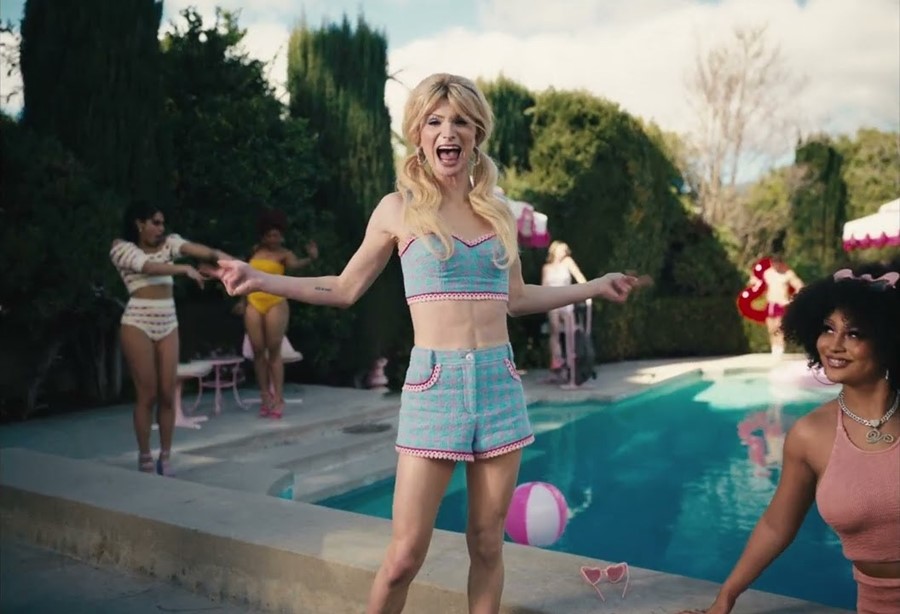While ‘girl’ trends have been heavily criticised, many young women argue that they have helped them reclaim parts of their femininity that they were denied growing up. So why is it such a problem when trans women participate?
Last week, TikTok personality, actress and singer Dylan Mulvaney released her debut single “Days of Girlhood”, inspired by her TikTok series of the same name. The song is fun, summery, catchy and terrible, as all the best pop songs are.
The song covers Mulvaney’s experiences as a transgender woman and her relationship with femininity. In the pre-chorus, she jovially lists her weekly routine as a girl: “Monday, can’t get out of bed, Tuesday morning pick up meds, Wednesday retail therapy ‘cash or credit?’ I say yes; Thursday, I had a walk of shame (didn’t even know his name); weekends are for kissing friends; Friday night, I’ll overspend; Saturday, we flirt for drinks; Sunday, the Twilight soundtrack cues my breakdown in the bath.”
The song is silly and reflects how ‘girlhood’ is often spoken about online. From ‘girl math’, ‘girl dinner’, ‘lazy girl’, ‘that girl’, ‘girl therapy’, ‘vanilla girl’ ‘clean girls’, ‘coquette girls’ and so on – Mulvaney’s song simply indulges in what we saw in 2023: women leaning into the frivolity and childishness, that many argued they were denied in their younger years.
But when Mulvaney released her music video for “Days of Girlhood” on Friday (March 15), which made a strong commitment to the Barbiecore aesthetic and featured other trans women such as Gigi Gorgeous Getty and Ve’ondre Mitchell, she was mercilessly accused of not only mocking women but of being misogynistic in her description of womanhood. To be clear, Mulvaney’s song is personal to her. She states this in an interview she did with Pink News over the weekend: “This single came from my desire to reclaim my relationship to femininity and celebrate trans joy.” And yet transphobes and TERFS still believe that Mulvaney is trying (and failing) to define what womanhood is.
In their responses, countless transphobes and TERFS made videos explaining what womanhood really is. One TikTok user made a video and captioned it: “I didn’t birth a whole child for this to be a song supposedly summoning up womanhood,” suggesting that birthing a child is a marker of what womanhood really is. Another video delved deep into the trauma and pain that young women experience in childhood, which is supposedly fundamental to being a woman. So while TERFs and transphobes criticise Mulvaney, who was, once again, not trying to represent a whole group of people, for making generalisations about women, they themselves are making universal declarations about what makes a woman and what all women suffer from.
This universalisation of the “female” experience is not only lazy but has historically been incredibly harmful. During the second wave of feminism, white feminists were heavily criticised for their generalistic claims about women and their plight, which tended to focus on the experiences of white, middle-class, non-disabled, heterosexual women. This, in turn, ignored the ways imperialism, racism, class, sexuality and disability impacted the oppression of women outside of the margins, and this is precisely the sentiment that TERFS and transphobes are expressing in their responses to Mulvaney’s video. Not all women can have children, not all women have had horribly sad childhoods, and not all women experience oppression or womanhood the same.
@attemptedsoc “let people enjoy things 😒😒” you are literally a walking advertisement for companies that don’t care about you #fyp #educational #longervideos #greenscreen #dylanmulvaney #girlhood #girlhoodaesthetic #daysofgirlhood #feminism #consumerism #genz #womanhood #lanadelrey #ethelcain #lgbtq #lgbt #womenempowerment #girltherapy #girlmath #hotgirlwalk #viral #materialgirl #materialism ♬ original sound - gia 🪐🪐
In her essay, “In Defence of Men”, for Majuscule, writer Sophia Giovannitti writes that “every time a cis lesbian fights for legislation denying trans women the right to use women’s restrooms, she strengthens the oppression of all women.” While these women attacking Mulvaney believe that they are advocating for cis women, they’re doing the exact opposite. By universalising the experience of womanhood, these women create strict binaries that all women must adhere to, and when we falter or get tired of adhering to those strict rules all of the time, we will be punished for it. This is exactly what happened to Amber Heard and Megan Thee Stallion over the last few years. These binary ideas of what makes a woman are not things we should be fighting for but fighting against.
One positive thing that this discourse has stressed is how ridiculous ‘girl’ trends are. We’ve known this for a while: writer Rebecca Jennings highlighted that “girl trends” are nothing more than marketing campaigns in her article for Vox last year, and Billie Walker demonstrated how infantilising and biologically essentialist these trends can be in her piece “Why ‘girl’ trends need to stop.” And yet, many cis-women still maintained that these trends were significant because girls are taught that ‘girlishness’ is a bad thing and the tide is finally shifting. But this argument has always felt difficult for me to reckon with because, while I was made to feel embarrassed about liking the colour pink as a child, I can also recognise that this version of femininity – which has now been so heavily popularised on the internet – is also the most rewarded in our society, because it adheres to traditional notions of femininity. So, it’s not surprising that Mulvaney feels connected to this display of girlhood. Gender is not something innate to us; it is given to us by others. So we perform the version of femininity or masculinity that we believe nobody can take away from us, the version that will keep us safe. Which is all to say that Mulvaney is not the issue here – the problem is, and has always been, ‘girl’ trends.




